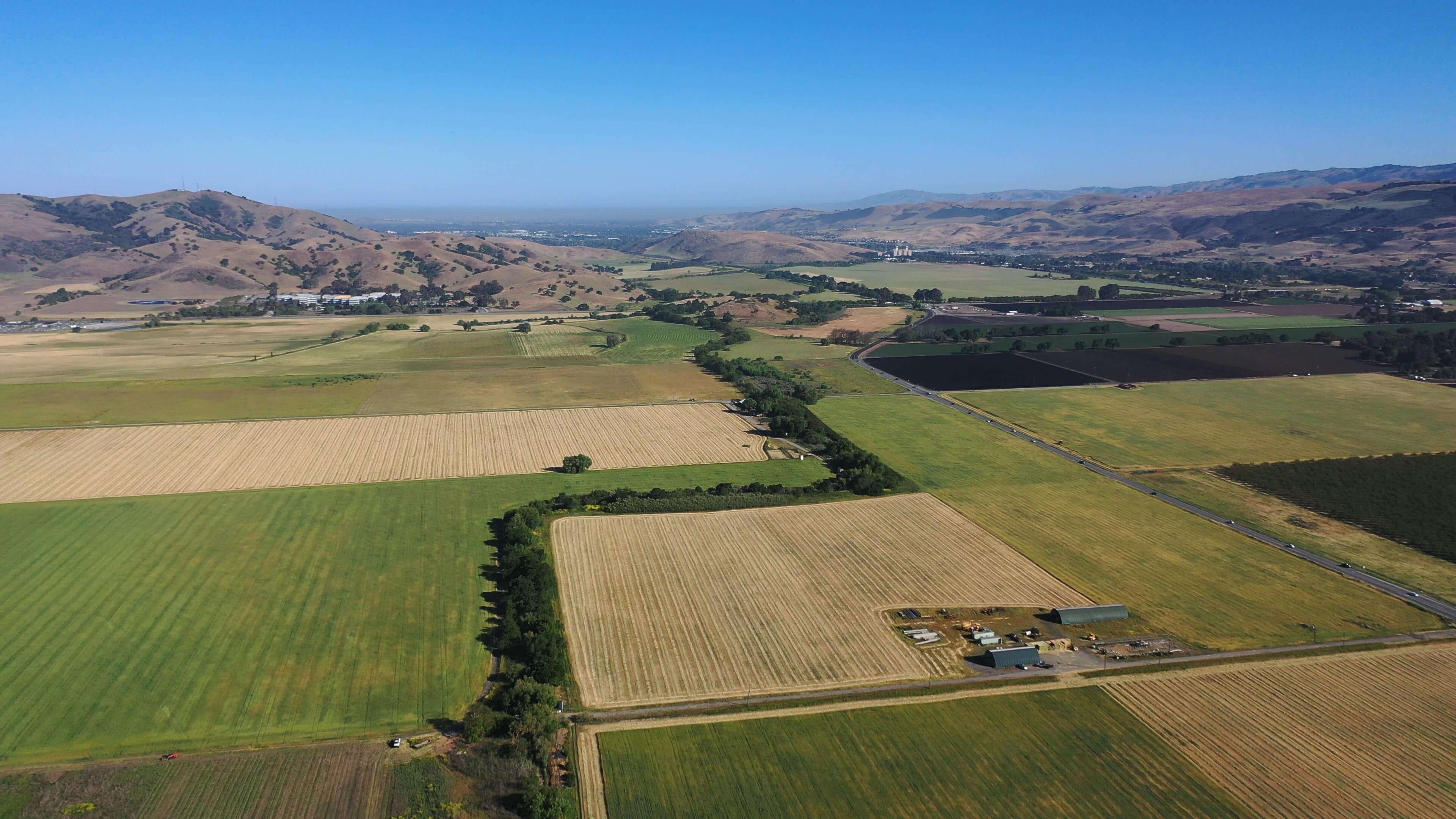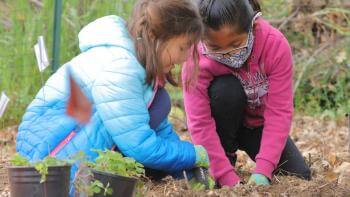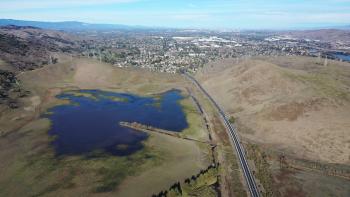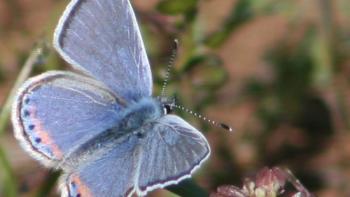Public ownership of Coyote Valley continues to grow
In the latest step toward expanding public ownership in Coyote Valley, the Open Space Authority has acquired 141 acres from our longtime conservation partner Peninsula Open Space Trust (POST). This purchase, completed at a “bargain sale” price of $5.1 million—significantly below POST’s original purchase cost—was funded almost entirely by a grant from the California Wildlife Conservation Board. This transfer brings the total acreage in Coyote Valley under public ownership through the Open Space Authority to over 1,100 acres for the benefit of people and nature.
Once designated for dense development, the property consists of six parcels in the middle portion of Coyote Valley, along the Fisher Creek corridor on Santa Teresa Boulevard south of Bailey Avenue, (view a PDF map here) where we have already been collaborating with POST and other local organizations to restore the creek’s natural functions.
This marks the second Coyote Valley transfer between POST and the Open Space Authority within just four months, following the November 2024 transfer of 376 acres in North Coyote Valley. Both transactions (a total of 517 acres) include a conservation easement to be held by POST, designed to protect wildlife habitat connectivity, groundwater resources and downstream flood risk reduction while allowing for activities that support cultural resources, agriculture and low-impact public recreation.

“With this transfer, public ownership of Coyote Valley continues to grow,” said Andrea Mackenzie, general manager of the Authority. “Looking ahead, the Authority will continue our work to restore the protected lands within the Coyote Valley Conservation Program Area. If we enable the landscape to perform its natural functions – cleaning and storing groundwater, providing resilient habitat and safe passage for wildlife away from residential areas– it benefits all of us and future generations.”
Protecting and Restoring Coyote Valley
Fisher Creek winds north through the heart of Coyote Valley, merging eventually with Coyote Creek and flowing into San Francisco Bay. It was channelized in the early 1900s to create a miles-long drainage canal to serve agricultural activities across the region. Over time, that altered natural functions of the waterway and surrounding lands that can now be restored to benefit contemporary human and wildlife communities.
Since 2017, POST has acquired lands for conservation along the Fisher Creek corridor in Coyote Valley, a critical geography for wildlife connectivity and floodplain restoration. With this mid-valley property now under the long-term management of the Authority, work to restore almost a mile of the Fisher Creek corridor can progress. The creek side, wetland and grassland habitats along this corridor act as “steppingstones” for both resident and migratory wildlife seeking water and safe passage across Coyote Valley.
This continuous habitat restoration work plays a vital role in creating a sustainable and thriving ecosystem, establishing a buffer between Fisher Creek and nearby agricultural lands which helps improve water quality. Additionally, the buffer zone provides essential habitat for pollinators like bees and butterflies, which are critical for maintaining biodiversity and supporting local agriculture. The restored area also offers food sources for native bird species. Beyond these ecological benefits, the vegetation along Fisher Creek reduces soil erosion, stabilizing the land and enhancing the watershed's overall health. Together, these efforts create long-term resilience in this important landscape.
Known as a “last chance landscape,” Coyote Valley allows species to pass between the Santa Cruz and Diablo Mountain Ranges across the shortest possible route. Its conservation helps to protect the entire region’s biodiversity and ecological health in an era of climate change and land fragmentation. Protecting this landscape is key to maintaining long-term ecological connectivity between more than 1.1 million acres of core habitat and protected areas in the Santa Cruz and Diablo Mountain Ranges that surround the Santa Clara Valley.
"This important transfer is a continuation of our shared vision for a permanently protected and restored Coyote Valley. POST is grateful to the many generous donors who have enabled us to protect and convey this property for permanent public stewardship by the Authority," said Gordon Clark, president of POST. “This land will serve us all best if we allow it to act as the unique wildlife passage and groundwater repository that it wants to be."
The transferred lands are included in the Coyote Valley Conservation Areas Master Plan, a comprehensive public planning project that will create a roadmap for the future use and restoration of Coyote Valley’s recently protected valley-floor lands. The Open Space Authority also hosts regular habitat restoration events where the public can get involved.



